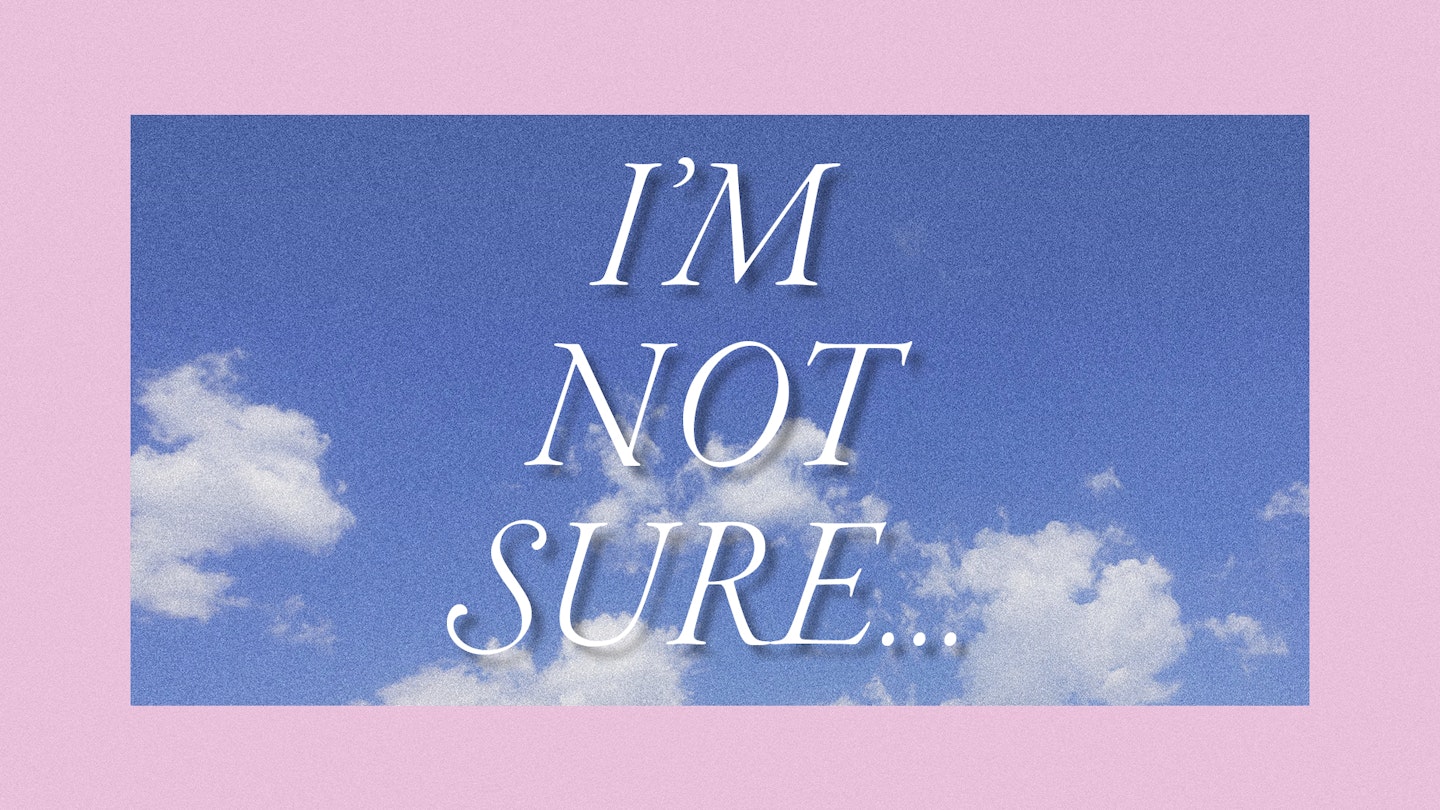'I’m not sure’ needs a rebrand. We assume it means that we are uninformed or, worse still, unmoved; completely incapable of forming an opinion of note. We find ourselves ad-libbing half-baked responses to open-ended questions, scrambling for something that even slightly resembles a point of view. We form last-minute theories on the spot, desperate to avoid the eternal shame of indifference. But to hell with all that. We need to normalise uncertainty.
We seem to have convinced ourselves that it is our duty, at all times, to mediate between two sides and decide which argument is right. When, in truth, it isn’t always that easy. Of course there are exceptions, things that require no deliberation whatsoever: systemic racism must be completely and unequivocally dismantled. Women must be granted equal pay. Baby Spice was the weakest Spice Girl. But for others, there is no oven-ready response.
A journalist recently asked me if I thought the statue of Winston Churchill outside Parliament ought to be pulled down. I wasn’t sure how to respond. I was only vaguely familiar with Churchill’s many character flaws; the result, perhaps, of a British school curriculum that taught us more about his victory than his villainy. But I was aware he was a politically polarising figure. I felt compelled to make a snap decision based on instinct, like a linesman called in to resolve some impossible tiebreaker. I started forming an urgent opinion in my head. ‘I’m pretty sure he was a raging racist,’ said my inner voice, ‘let’s go with pull it down.’ But my mouth simply refused to comply. I wasn’t sure. ‘I think we need to unpack the complexity of figures like Churchill,’ I said (academic speak for ‘I haven’t got a clue’) and the interviewer moved on.
I’d found myself in that place we’re told we should never be: on the fence. Look, I’ll be honest, it does feel pretty great when discernment prevails and you are able to perfectly articulate your stance on a particular issue. It’s an opportunity to tie a bow around your cognitive dexterity and deliver a pretty package of reason and logic. Some people (members of Parliament mainly) have even figured out how to have a gift-wrapped response on standby for every debate. But knee-jerk responses can be to our detriment.
In times of contention we find ourselves picking a side, often with very little source material to justify our choice. We form opinions and remain shackled to them out of fear of contradiction. You may have done this yourself. Perhaps you found yourself siding with the majority based on an impulsive decision that seemed, in that instance, to fit your morals. Maybe you later read something that discredited your original view but, rather than changing your opinion, you remained tethered to that arbitrary choice for all eternity so as not to appear wishy-washy.
And this is the problem with our fear of the fence. It careers us down a cul-de-sac of unmeasured opinion. It forces us to go with the tide, repeating what everyone else is saying rather than taking the time to form our own beliefs. It makes us pig-headed and combative when we’re then forced to defend our flawed perspectives.
So it’s time we realised that ‘I’m not sure’ is not a cop out. It gives us the freedom to learn
Of course by now social media will have already indoctrinated some of you into its school of obstinacy; assuring you that you do have all the answers and that you simply must share them with everyone, using eight-part-threads and wordy blog posts. And for you guys I’m afraid it may be too late. We’ve lost you to the world of Hot Take Twitter. But for everyone else, there is still hope.
So it’s time we realised that ‘I’m not sure’ is not a cop out. It gives us the freedom to learn, it accepts that judgements can be flawed or change over time. It leaves room for new information. That space between certainty and uncertainty can in fact be an incredibly fruitful grey area, as it is from this corridor that we are able to enter new rooms of enlightenment and understanding. Progress can only ever be achieved when we stop shouting and begin talking. This means navigating the labyrinth of opinion and affording ourselves the opportunity to fill the gaps in our knowledge in our own time. It means accepting that, when all is said and done, few things are black and white.
‘Outraged: Why Everyone Is Shouting And No One Is Talking’ by Ashley ‘Dotty’ Charles (£14.99, Bloomsbury Circus) is out 9 July
